Interplay of Umarā’ and ‘Ulamā’: The Darul Huda Model of Harmonious Leadership
Da‘wah rests upon two foundational pillars: the ‘ulamā’ (scholars) and the umarā’ (leaders or those in authority). Both occupy strategically vital positions in shaping the socio-political framework of the community. Through the religious insight and guidance of the ‘ulamā’, society is steered along the path of righteousness. Without their presence, the community is deprived of the light that leads to truth and moral clarity. The principal role of the ‘ulamā’ is to uphold the religion of Islam and serve as moral and spiritual guides for humanity.
The profound status of the ‘ulamā’ is clearly highlighted in a ḥadīth of the Prophet ﷺ, narrated by Imām al-Bukhārī:
“Allah does not take away knowledge by snatching it from the hearts of the people, but He takes it away through the death of the religious scholars—until, when no scholar remains, people will appoint the ignorant as leaders; they will be asked, and they will issue verdicts without knowledge. They will go astray and lead others astray.”
(Ṣaḥīḥ al-Bukhārī)
This narration makes it incumbent upon Muslims to honour and protect the ‘ulamā’, ensuring that their presence continues to spread goodness and preserve peace within society.
Meanwhile, the umarā’, with the authority entrusted to them, are in a position to implement policies that serve the public good—whether in the economic, political, social, or religious domains. In other words, da‘wah and amr bi-l-ma‘rūf wa-nahy ‘ani-l-munkar (enjoining right and forbidding wrong) require not only spiritual guidance but also the practical support of governance and power.
Hence, the positive and purposeful integration of ‘ulamā’ and ‘umarā’ in the cause of da‘wah has remained an enduring necessity throughout the ages.
Even though the ‘ulamā’ and umarā’ hold crucial positions—especially in realising Islamic values and advancing da‘wah—their relationship has historically seen both cooperation and conflict. The nature of this relationship is often shaped by the paradigm through which the umarā’ view power in relation to religion and da‘wah.
‘Umarā’ who adopt a secularist outlook tend to sideline the role of the ‘ulamā’ in governance, using them merely as stepping stones to gain influence or legitimacy. Once political interests are secured, the ‘ulamā’ are often discarded—treated like someone who pushes a stalled vehicle: once the engine starts, they are left behind on the road. A familiar example is seen during election seasons, when many political candidates suddenly develop an interest in visiting madāris (Islamic boarding schools) run by ‘ulamā’, recognising them as influential institutions and community strongholds of public support.
Despite these fluctuations, the historical relationship between the umarā’ and ‘ulamā’ has significantly shaped Islamic civilisation. Their interplay has influenced governance models, social ethics, and the religious fabric of Muslim societies, balancing worldly authority with spiritual leadership.
A remarkable example of a contemporary synthesis of this dual leadership is Darul Huda Islamic University in Kerala, India. Darul Huda presents a model of harmonious leadership that thoughtfully integrates the roles of both ‘ulamā’ and umarā’ within a framework of progressive Islamic education, social reform, and community empowerment.
This article explores the complexities of the umarā’–‘ulamā’ dynamic, focusing on Darul Huda as a living case study. The discussion sheds light on its historical context, the distinctive features of Darul Huda’s leadership model, and the broader implications it holds for shaping contemporary Islamic leadership rooted in both tradition and forward vision.
The Distinctive Roles and Interdependence of ‘Ulamā’ and Umarā’
Etymologically, the term ‘ulamā’ is derived from the Arabic word ‘ālim, meaning “one who possesses knowledge.” Its antonym is jāhil—the ignorant or unlearned. In the early period of Islam, the title ‘ulamā’ was reserved for those deeply grounded in the religious sciences. The special reverence that society attributes to the ‘ulamā’ reflects their elevated status within the community—an honour further affirmed by Allāh ﷻ and His Messenger ﷺ through numerous Qur’ānic verses and aḥādīth.
From a terminological perspective, scholars have proposed various definitions of the term ‘ulamā’. However, as noted by Ade Wahidin, none of the existing definitions fully satisfy both the conditions of jāmi‘ (comprehensiveness, including all its essential aspects) and māni‘ (exclusive boundaries, excluding what does not belong). Despite this, a common thread among all definitions is the recognition that the defining feature of the ‘ulamā’ is their deep and expansive knowledge of religion, such that their personality and conduct are shaped by what they know and understand of the dīn.
Thus, a true ‘ālim is not merely one who holds knowledge (‘ilm) intellectually, but one who embodies it through practice and internalises taqwā—a profound fear and reverence of Allāh ﷻ. This synergy between knowledge and piety is what elevates the ‘ulamā’ and earns them the rightful respect of the believing community.
From the various definitions of ‘ulamā’, the essence remains that they are individuals whose knowledge leads them to develop deep khawf—a reverent fear—of Allāh ﷻ. The ‘ulamā’ are the inheritors of the prophetic legacy. As conveyed in the ḥadīth, “The scholars are the inheritors of the prophets,” and whoever partakes in that inheritance has received a portion of prophetic guidance in its truest form.
According to Imām al-Ghazālī, the noble and exalted position of the ‘ulamā’ is clearly affirmed in the Qur’ān. In Sūrat al-Mujādalah (58:11), it is stated that Allāh raises in rank those who believe and those who have been granted knowledge. This divine recognition of status necessitates that the community understand and protect the dignity of the ‘ulamā’.
The ‘ulamā’ can be likened to stars in the night sky—each with unique attributes. Among the distinguishing traits of a true ‘ālim are:
- Wara‘ – a cautious attitude that avoids sin and doubtful matters.
- Courage and commitment to truth – the ability to speak the truth regardless of consequences.
- Compassion – sincere love for fellow Muslims and readiness to forgive.
- Detachment from opportunism and flattery – a refusal to seek favour through sycophancy.
- Closeness to Allāh ﷻ – through consistent acts of worship like ṣalāh, ṣawm, and recitation of the Qur’ān.
- Dedication to religious scholarship – a serious commitment to deepening knowledge and extracting sound proofs (dalā’il) from the sources.
Given these noble characteristics, it is only fitting that the ‘ulamā’ are granted the authority to explore and articulate aḥkām shar‘iyyah (religious rulings), contributing to a just and refined moral order within society.
However, the prestige of the ‘ulamā’ also brings responsibility. They must be conscious of their own status and never degrade themselves before anyone—including the ‘umarā’. Their relationship with those in power must be principled and grounded in commitment to the truth.
In this context, Fethullah Gülen wisely cautions that the ‘ulamā’ should avoid overly intimate relations with rulers and the wealthy elite, except when fulfilling their duty of amr bi-l-ma‘rūf wa-nahy ‘ani-l-munkar. The Messenger of Allāh ﷺ said:
“The worst among my ummah are the scholars who frequent the rulers, and the best among the rulers are those who frequent the scholars.”
Thus, any relationship between the ‘ulamā’ and the ‘umarā’ should remain within the bounds of da‘wah and enjoining good, to prevent the ‘ulamā’ from becoming entangled in worldly interests that may silence their tongues from speaking the truth.
Functionally, the ‘ulamā’ cannot operate in isolation when striving to realise goodness and advance da‘wah within society. Their role requires complementary support—particularly the power structures that enable the outcomes of istinbāṭ al-aḥkām (derivation of legal rulings) and da‘wah efforts to be implemented effectively in real life. This is where the role of the ‘umarā’ becomes vital: they strengthen and support the Islamic da‘wah narratives championed by the ‘ulamā’.
Etymologically, the term ‘umarā’ corresponds to ulū al-amr as referenced in the Qur’ān—those entrusted with authority, decision-making, and the management of communal affairs. This designation is broad and inclusive, encompassing leadership at various levels: from khulafā’ and rulers to local socio-political leaders within communities.
In contexts like India, where Muslims constitute a minority, religious and communal responsibilities are often decentralised and carried out by local clusters. Here, the role of community leaders—respected elders, organisers, educators, and administrators—becomes especially crucial. These ‘umarā’ serve as the backbone of grassroots empowerment, ensuring the preservation of religious identity, the facilitation of educational initiatives, and the overall welfare of the Muslim community amidst a pluralistic society.
According to Imām al-Māwardī, the principal duties of the umarā’ include:
- Upholding the correct application of religion (ḥifẓ al-dīn),
- Administering justice and implementing laws rightly,
- Preserving internal security and public safety,
- Enforcing ḥudūd (criminal penalties) to protect the rights of individuals,
- Safeguarding the borders through an effective defence system,
- Engaging in jihād against external threats,
- Collecting taxes and zakāh in accordance with the sharī‘ah,
- Appointing individuals to roles that match their expertise,
- Managing and distributing the wealth of the Bayt al-Māl,
- Monitoring societal developments and responding to community needs.
Each of these responsibilities is directly tied to strengthening Islamic da‘wah, which cannot be reduced to mere public preaching followed by disengagement. Rather, the ‘umarā’ are expected to accompany, support, and protect the ummah, fostering a sense of unified leadership and care.
Given their respective functions, it becomes clear that the ‘ulamā’ and umarā’ are mutually dependent. Their synergy and integration are essential to generating collaborative and transformative influence—building a society that is just, flourishing, and aligned with Islamic norms and ethical civilisation.
Darul Huda Islamic University: An Influential Outcome of ‘Ulamā’–‘Umarā’ Commitment
Darul Huda Islamic University stands as a compelling example of the fruitful partnership between the ‘ulamā’ and umarā’ in shaping an educational legacy rooted in Islamic tradition yet responsive to modern realities. Established with a visionary goal to synthesise classical Islamic scholarship with contemporary academic disciplines, the institution was the result of a collaborative initiative led by Dr U. Bāputti Ḥājī—a reformist thinker whose administrative acumen and far-sighted commitment to the intellectual upliftment of the Muslim community provided the strategic backbone for the project.
Alongside him were renowned scholars such as C.H. ‘Aidarūs Musliyar and M.M. Bashīr Musliyar, whose mastery of Islamic sciences and pedagogical excellence anchored the university’s theological foundation. This union of visionary leadership and scholarly authority marked a critical moment in Kerala’s Muslim educational landscape.
Darul Huda’s founding philosophy was both bold and revolutionary: to cultivate a generation of scholars who are firmly grounded in the uṣūl and turāth (foundational sources and classical heritage) of Islam, while simultaneously being proficient in modern fields of knowledge. The institution aimed to produce holistic leaders—capable of engaging with the complexities of contemporary life through the lens of Islamic ethics and intellectual rigor.
This dual-focus model reflects the very essence of ‘ulamā’–umarā’ synergy: administrative foresight empowering religious vision, and scholarly depth shaping strategic execution. The outcome was not just an institution, but a movement—redefining the role of the ‘ālim as a thinker, reformer, and societal leader equipped for the global age.
The success of Darul Huda Islamic University lies in its exemplary leadership model, which harmoniously integrates the strengths of both the umarā’ and the ‘ulamā’. The ‘umarā’, led by Dr U. Bāputti Ḥājī, played a foundational role by providing infrastructural support, mobilising financial resources, and charting the strategic direction necessary for the institution’s establishment and continued growth. He was not alone in this endeavour—two other visionary community leaders, Chemmukkan Kunjappu Ḥājī and K.M. Zaid ‘Alawīy Haji, worked alongside him with unwavering dedication to realise the shared vision. Their collaborative effort with C.H. ‘Aidarūs Musliyar and M.M. Bashīr Musliyar laid the groundwork for what would become one of the most influential Islamic educational institutions in the region.
Recognising the need for robust academic leadership, these founders invited two eminent scholars from Kerala—Shaykh Cherussheri Zaynuddīn Musliyar and Dr Bahā’uddīn Nadwī—to lead Darul Huda’s academic development. With their scholarly authority and educational foresight, these ‘ulamā’ played a pivotal role in shaping the intellectual and curricular direction of the university. Their leadership helped ensure that Darul Huda remained deeply anchored in the Islamic scholarly tradition while engaging meaningfully with the demands of modern education.
The ‘ulamā’ brought depth, rigour, and spiritual integrity to the institution. They focused on designing a curriculum that merged ‘aqlī (rational) and naqlī (revealed) sciences, nurturing scholars who could engage the contemporary world through an Islamic epistemological lens.
The collaboration between the ‘ulamā’ and umarā’ was not without its challenges. Differences in priorities and methodology occasionally arose. However, their shared commitment to the comprehensive empowerment of the Muslim community enabled them to resolve such tensions constructively. Regular shūrā (consultation), mutual respect, and a unified vision for balanced education served as the pillars sustaining this unique model.
The results have been transformative. Darul Huda has emerged as a pioneering force in Islamic education—not only in India but across the globe. It has produced thousands of graduates, known as Hudawīs, who now serve as scholars, educators, public thinkers, and leaders in various sectors. These individuals embody a distinctive synthesis of spiritual depth and worldly competence, addressing contemporary challenges from interfaith engagement to socio-economic reform.
Darul Huda’s influence has also extended through a network of affiliated institutions and satellite centres, spreading its educational philosophy far beyond its original geographic location. The university’s emphasis on critical inquiry, ethical leadership, and academic excellence continues to inspire similar initiatives worldwide.
Ultimately, Darul Huda stands as a testament to what is possible when the strategic vision of the ‘umarā’ is combined with the scholarly integrity of the ‘ulamā’. It offers a living model for Islamic institutions seeking to navigate the complexities of the modern world without compromising the authenticity of the Islamic tradition.
Conclusion
The Darul Huda model serves as a compelling testament to the transformative power of unity between the ‘ulamā’ and ‘umarā’. By blending scholarly depth with strategic leadership, visionaries like Dr U. Bāputti Ḥājī, C.H. Ḥaidarūs Musliyar, and M.M. Bashīr Musliyar laid the foundation for an institution that continues to shape minds and reform communities, especially in a country where Muslims are a minority. Their collaboration highlights that sustainable progress in the Muslim world depends not on isolated efforts but on integrated leadership rooted in sincerity, consultation, and a shared commitment to the betterment of the ummah. As Islamic institutions navigate new realities, Darul Huda remains a great model of balance, vision, and purpose.
About the author:
Sayyaf Pukayoor is a student at Shamsul Huda Islamic Academy, Kuttikatoor, affiliated with Darul Huda Islamic University. He is currently pursuing his studies in the Department of Civilizational Studies.
More Related Articles
Darul Huda: From an Academy to a Movement – Four Decades of Transforming Islamic Education
Darul Huda Islamic University: The Niche of Educational Reform in South India
Disclaimer
The views expressed in this article are the author’s own and do not necessarily mirror Islamonweb’s editorial stance.
1 Comments
-

This was a deeply insightful and thought-provoking article. The way it explored the historical and spiritual relationship between the ʿUlamāʼ and the Umara highlighted the crucial balance between knowledge and power in Islamic governance. It’s refreshing to read a piece that not only honors the role of the scholars in preserving the moral and intellectual foundations of the Ummah but also reminds the Umara of their responsibility to rule with justice, guided by true knowledge. May Allah increase your wisdom and barakah in your work – this kind of content is much needed in today’s world.

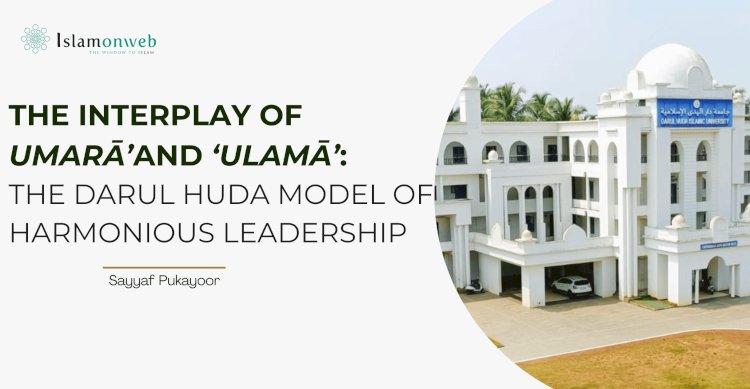


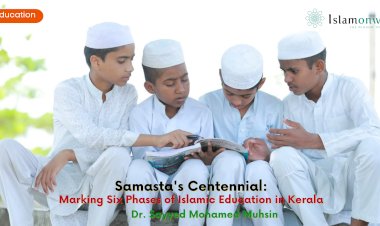
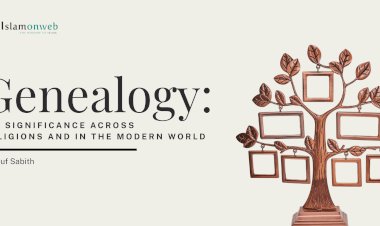

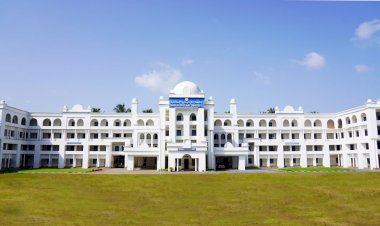
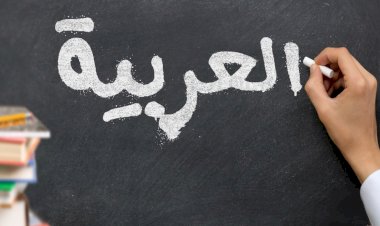
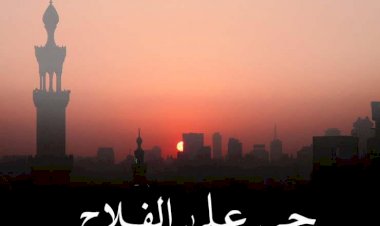














Leave A Comment